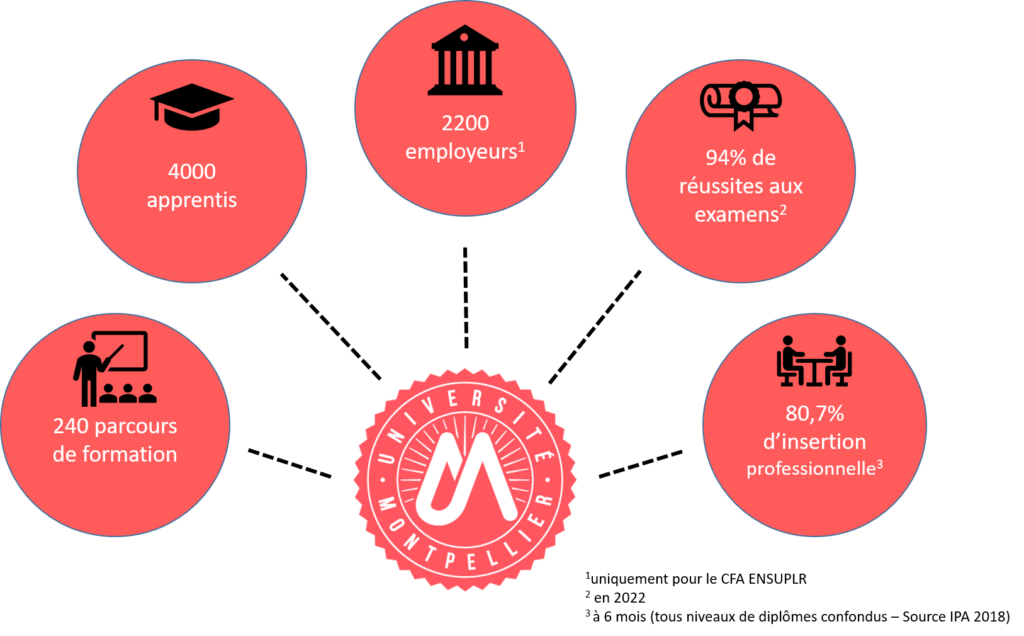Learning
Apprenticeship is a work-study program that combines study and practical experience in a company, enabling students to prepare for a degree while working for a company. Popular with young people and employers alike, apprenticeship has become a winning combination for obtaining a degree up to bac+5. It's also a way of quickly breaking into working life through a 1ᵉʳ skilled job.
Throughout the year, the apprentice alternates between periods of study at the university and periods of work in the company, according to a schedule defined at the outset by the training center and the company. They are paid according to their age and year of study, and are eligible for various forms of financial assistance.
This scheme is open to young people under 30, on the day the contract is signed.
Why choose apprenticeship?

Apprenticeships provide students with their first professional experience, enabling them to discover their chosen profession before completing their schooling. More than an internship, an apprenticeship is considered a real job, and offers total immersion in corporate life. It's also an opportunity to enrich your network.
Having 1 or 3 years' professional experience at the end of your training is also a real asset when it comes to getting noticed by future employers. And it's not uncommon for companies to recruit their apprentices at the end of their apprenticeship contract.
Apprenticeship diplomas
Apprenticeships are now available for all levels of higher education diploma: BUT, Licence Pro, Licence, Master, Diplôme National, Diplôme d'Ingénieur.
At the UM, more than 250 training courses are already open to apprenticeship, with new ones opening up every year. To find a course in the field you're looking for, consult the UM's apprenticeship offer.
What status and missions?
Apprentices at university have dual status as students and employees. They carry out two activities at the same time, alternating periods of training at the university and work at the company, at a pace that can vary from a few days to several weeks, depending on the educational requirements of the course and the needs of the company.
The company's assignments are validated by the teaching team to ensure that they are relevant to the course. This enables them to directly confront the theoretical notions they have learned in class with real-life situations encountered in the field.
Compensation and benefits?
Apprentices are salaried employees of the company to which they have signed an apprenticeship contract. They benefit from the social legislation applicable to salaried employees, and receive a minimum wage based on their age and seniority. Apprenticeship years count as full years for retirement purposes.

The student-apprentice is exempt :
- registration fees (paid by the CFA) ;
- the student's social security costs (he is covered by social security as an employee).
It benefits from :
- a medical examination on hiring as an employee ;
- additional financial aid - on request (driving license, transport, housing, ....);
- the same rights as company employees.
On the other hand:
- Apprentices are not exempt from the CVEC (Contribution à la Vie Etudiante et Campus): €95.
- Payment of social grants is suspended during the apprenticeship contract.
For further information, please consult the Apprenticeship contract section of the service.public.fr website.



